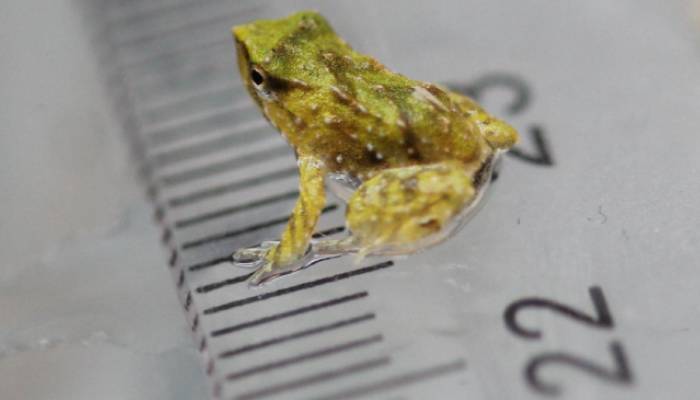
Endangered male Southern Darwin’s frogs have successfully given birth to 33 young frogs in the UK.
This uses a unique method of raising their offspring which is a crucial effort to save the species from a deadly fungal disease.
As per BBC, these frogs’ tadpoles grow inside the father’s vocal sac and are later born through the father’s mouth as small froglets.
Male frogs, who carry their young in their vocal sacs travelled a remarkable distance of 7,000 miles to London Zoo, using boats, planes and cars from their remote island off the southern coast of Chile.
These frogs were first discovered by Charles Darwin in 1834. Conservationists believe that keeping some of the frogs in captivity will help preserve the species while they work on protecting and restoring their natural forest habitats.
Andrés Valenzuela Sanchez, ZSL's Institute of Zoology research fellow, said, "These frogs are not only vital for the future of their species but also help us better understand how we can combat chytrid fungus and safeguard other amphibians globally."
Meanwhile, Ben Tapley, curator of amphibians at London Zoo, said in a statement, “This is a landmark moment in our work to protect the Darwin's frog from the devastating impact of chytrid fungus. The successful parent-rearing of these froglets is a powerful symbol of hope for the species [and] highlights what can be achieved when conservationists work together."
Amphibian chytridiomycosis is a fungal disease that has affected more than 500 species of amphibians.
It is considered one of the most severe and harmful infectious disease identified by scientists.















